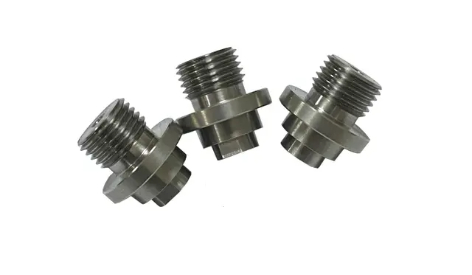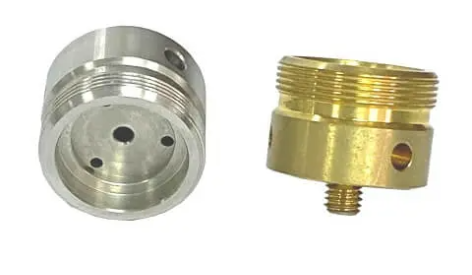Views: 0 Author: Site Editor Publish Time: 08-07-2025 Origin: Site








Industrial systems depend heavily on a wide range of components to maintain smooth operations, ensure efficiency, and safeguard safety. Among these, pump and valve parts are fundamental in ensuring optimal performance. Whether it's a power plant, a chemical refinery, or a water treatment facility, these critical components play a crucial role in maintaining fluid flow and regulating the passage of liquids or gases.
At the core of many industrial applications are pumps and valves, which work together to control the flow of fluids, manage pressure, and ensure system stability. Pumps are used to move liquids, gases, and slurries through pipelines and equipment. They can be found in various industries, including water treatment, chemical processing, oil and gas, and manufacturing. Valves, on the other hand, regulate the flow and pressure of these fluids, allowing for precise control of processes.
Pump parts include key components such as impellers, shafts, seals, bearings, and casings, each contributing to the pump's overall functionality. Similarly, valve parts include bodies, stems, seats, discs, and seals, which are responsible for regulating the fluid's passage and maintaining pressure within pipelines.
The performance and efficiency of industrial systems are directly tied to the quality of the pump and valve parts used. High-quality parts are engineered for precision and durability, leading to smoother operations, reduced energy consumption, and more efficient fluid handling.
Quality pump and valve parts ensure that systems run efficiently by minimizing friction, leaks, and wear. For example, high-quality seals and gaskets help prevent fluid leakage, ensuring that all of the pumped material reaches its destination without loss. Additionally, well-machined components such as impellers and valve seats help minimize energy losses by reducing internal friction, leading to lower energy consumption and more efficient operation.
In industries where uptime is critical, the use of low-quality or poorly manufactured pump and valve parts can lead to unexpected breakdowns and maintenance issues. These failures often result in extended downtime, leading to a halt in production and significant financial losses. High-quality parts, however, have superior reliability, leading to fewer breakdowns and less maintenance, ensuring continuous operation and enhanced productivity.
Maintaining consistent fluid flow and pressure is crucial for the proper functioning of many industrial systems. Low-quality valves may not open or close properly, causing fluctuations in pressure that could damage equipment or disrupt processes. On the other hand, high-quality valve parts ensure accurate control over the flow of fluids, helping to maintain stable operating conditions.

Safety is always a top priority in industrial applications, and the quality of pump and valve parts plays a significant role in ensuring the safety of both the equipment and the personnel working with it.
Poorly manufactured pump and valve parts are more likely to experience leaks, which can lead to the contamination of the system or the surrounding environment. In critical industries like pharmaceuticals or food processing, even the smallest leak can have serious consequences, including product contamination and regulatory violations. High-quality parts, such as precision-engineered seals and gaskets, reduce the likelihood of leaks and help maintain the integrity of the system.
Many industrial systems operate under high pressure and temperature conditions. Low-quality pump and valve parts may not be able to withstand these extreme conditions, leading to catastrophic failures such as ruptures or explosions. High-quality materials, such as stainless steel or specialized alloys, are designed to handle such conditions without compromising safety. This ensures that systems remain operational without posing a risk to employees or the environment.
In many industries, safety regulations require the use of certified components that meet certain standards. High-quality pump and valve parts are often tested and certified to meet stringent industry standards, ensuring that the system complies with local and international safety regulations. This is especially important in industries like oil and gas, where equipment failure could have severe consequences.
Using high-quality pump and valve parts also has a significant impact on maintenance costs and the longevity of the equipment.
When companies use low-quality parts, they are likely to experience more frequent breakdowns and the need for repairs or replacements. This not only results in additional maintenance costs but also increases the risk of unplanned downtime. High-quality parts, however, are designed for durability, which reduces the frequency of maintenance interventions and lowers overall repair costs.
The lifespan of pumps and valves is directly influenced by the quality of the components used. High-quality parts are more resistant to wear and tear, corrosion, and fatigue, helping to extend the service life of the equipment. This leads to fewer replacements and ensures that the equipment operates at peak performance for a longer period, providing a better return on investment.
Companies that rely on low-quality parts may need to keep a larger inventory of spare parts on hand to deal with frequent failures. In contrast, using high-quality components reduces the need for such inventory, freeing up resources and reducing storage costs. It also allows businesses to streamline their supply chain, focusing on high-performance components that offer long-term reliability.

Choosing the right pump and valve parts for an industrial system is critical to ensuring efficiency, safety, and reliability. Here are some key considerations when selecting these parts:
The materials used in the manufacturing of pump and valve parts determine their resistance to wear, corrosion, and extreme conditions. Stainless steel, for example, is commonly used for its corrosion resistance and strength, making it ideal for harsh environments. When selecting parts, it's essential to ensure that the materials are suited to the specific operating conditions, such as pressure, temperature, and the type of fluid being pumped.
It's important to ensure that the pump and valve parts are compatible with the existing equipment and systems. Using mismatched or incompatible parts can result in poor performance, leaks, or system failure. Manufacturers often provide detailed specifications for their parts, so businesses should take the time to compare these with their current system requirements to ensure a perfect fit.
Choosing a reputable supplier with a proven track record of providing high-quality pump and valve parts is crucial. Look for manufacturers who offer certifications and quality control processes, as these indicate a commitment to producing reliable and durable components. Additionally, reputable suppliers often provide strong customer support and warranty services, ensuring peace of mind in case of issues.
While it may be tempting to choose cheaper pump and valve parts, opting for low-cost components can lead to higher long-term costs due to frequent repairs, downtime, and reduced system efficiency. Investing in high-quality parts may involve a higher initial cost, but the benefits in terms of reliability, efficiency, and safety often outweigh the initial investment.
In conclusion, the quality of pump and valve parts is essential for maintaining the efficiency, safety, and longevity of industrial systems. By investing in high-quality components, businesses can enhance their operational performance, reduce maintenance costs, and ensure regulatory compliance. The long-term benefits of choosing durable, reliable parts far outweigh the initial investment, providing businesses with a better return on investment and reduced downtime.
To learn more about top-tier pump and valve parts that can optimize your industrial systems, we encourage you to explore the wide range of solutions offered by JOC Machinery Co., Ltd. With years of expertise and a commitment to quality, JOC Machinery ensures that each part meets the highest standards, delivering reliable performance in demanding industrial environments.
Visit JOC Machinery Co., Ltd. today to discover more about our products and how we can help you improve your operations. Feel free to contact us for personalized advice or to inquire about our products tailored to your specific needs.
Our OEM Stainless Steel/Brass CNC Machining Mid-Size Pneumatic Valve Body is engineered for precise flow control in pneumatic systems used across industrial automation, energy, and manufacturing sectors. Manufactured in Jiangsu, China, this valve body is available in premium stainless steel or brass to suit different environmental and performance requirements. With ±0.05 mm tolerance, every component meets stringent quality standards for durability and operational reliability.
The CB310 Custom Slewing Drive is engineered for solar power tracking systems and other industrial applications that require smooth, precise rotational control. Designed and manufactured in Jiangsu, China, this slewing drive integrates a single-row cross roller bearing for maximum stability, and is compatible with either DC motors or hydraulic motors, depending on your project requirements. With diameters ranging from 200 mm to 4000 mm, this drive is suitable for a wide range of solar panel arrays and mechanical systems.
Add: 20/FL., 26 North Zhongshan Road, Nanjing, Jiangsu, China
Tel: 0086-25-83317070
Fax: 0086-25-83303377
E-mail: peter@jocmachinery.com


